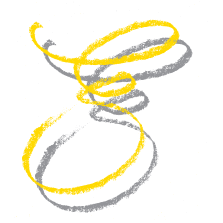A beautiful sunny day and relaxed atmosphere, meeting old friends, and knowing that we had all made the effort to come so far east in order to experience a dedicated performance of Parsifal: all this contributed to being in the right mood of receptivity for the performance. I was not disappointed.
The prelude showed off the hall’s fine acoustics, with playing that was at once warm and sonorous. It was a pity that one member of the woodwind misunderstood the beat and tempo of the opening unison phrase, but fortunately there were very few blips during the course of an afternoon and evening that provided a rich and fulfilling experience. Michael Thorne has some of the qualities of selflessness and complete focus on the shaping of the work that reminded me a little of Reginald Goodall, with whom I had the privilege to work on this piece. His beat can be effortful, but he has the quiet ability to pace the work naturally, indicating clearly when he will expand and when he will move on. The strings were not virtuosic, but they produced a warm and gentle tone with some special soft moments over which the woodwind could blossom. The horns were generally excellent and produced exciting ‘stopped’ tone, whilst the brass sonority was fine and led by some shining trumpet tone. Particularly good were the timpani, and the fourth horn which had so much important pedal work as well as lyrical solos. I thought that the bells were both intriguing to look at (like a glass house through which the player peered) and satisfying in sound, though the four tones were not always quite evenly struck.
The chorus had been well trained by James Davey, and were especially good in Act I. Though they all sat together in a block behind the orchestra, the first men’s grail procession chorus was sung by two groups. I thought it a pity that the ladies didn’t sit above in the balcony. But they sang very well and blended nicely. As Act II Flower Maidens they wore different coloured ribbons; here the balance between them and the 6 excellent soloists at the front was not ideal. In Act III the men sang well, but there was no antiphonal tension between the two groups.
The cast was a strong and experienced one, and I was impressed with how they all related to each other. Although it was a concert performance, the entrances and exits had been beautifully planned: this was particularly true of Elaine McKrill’s involvement in Act III (as indeed with her Brünnhilde last year). Two characters used the balcony effectively: Richard Wiegold as a rich-toned Titurel in Act I and Nicholas Folwell as Klingsor, who effectively appeared at the end of Act II. Folwell sang with fine tone and incisive diction throughout, showing that 35 years since his first Klingsor for the Welsh National Opera with Goodall and Negus had brought maturity and no decline in his vocal powers.
The shorter roles were all well taken: excellent Knappen (esquires) – the two ladies, Sharon Kempton and Melanie Lodge also singing Flower Maidens, and the two tenors strong and characterful (the young Arthur Bruce showing great vocal promise, and the experienced Brian Smith Walters vividly attentive to the dramatic situation). The same can be said of the two Grail Knights, Brian Smith Walters and Louis Hurst.
Andrew Greenan’s Gurnemanz was warmly sung and his face expressed touching sincerity. His whole narration was dramatically riveting, as was the eruption on to the scene of the young Parsifal. I liked the rhythmic drive that Michael Thorne brought to the Parsifal theme, and even when transformed into something majestic in the Good Friday scene, it retained its inner manly energy.
Michael Bracegirdle conveyed Parsifal’s progress from the wild boy towards self-consciousness and humility very well both in singing and understanding. Elaine McKrill explored Kundry’s complexity with expression and fine singing, first in her relationship with Amfortas (beautifully and expressively sung by Richard Burkhard), then with Parsifal, so that we were left in a state of anticipation for their big Act II scene.
After Kundry’s manic laughter at the end of the riveting first scene of Act II we met the six Flower Maidens wearing contrastingly coloured dresses led by the excellent Gail Pearson as Number 1 in group 1. Group 2 was led by Sharon Kempton, and the two groups were balanced very nicely each side of the conductor; each individual soloist making a delightful contribution. Parsifal was in their midst, both fascinated and resistant until hearing for the first time the magical sound of his name. Kundry, wearing an alluring dress, sang seductively. Michael Bracegirdle rose to the impassioned cry of ‘Amfortas… Die Wunde!’ He possesses a fine Wagnerian tenor voice and the intelligence to use it without forcing. The whole of their scene was sung with complete conviction.
Act III became the crown of the work, with a magical Good Friday flowering after many moments of solemn exultation, most notably Gurnemanz’s recognition of the Holy Lance, and Andrew Greenan saving his greatest vocal blossoming for ‘Oh Gnade! Hoechstes Heil’. Bracegirdle sang almost too softly in the Good Friday scene, but it was beautifully phrased and well balanced with the orchestra. After the desolate orchestral funeral music and chorus, Burkhard (Amfortas) sang a moving plea to his father, the dead Titurel, before rejecting with some fine high notes the Brotherhood’s demands to reveal the Grail. Parsifal appeared, accompanied by Gurnemanz and Kundry, and his final healing aria was nobly sung. The closing pages were radiant and moving.
The final impression was one of wholeness, as the beautiful face of the redeemed Kundry, and those of Parsifal, Amfortas and Gurnemanz gazed out into the audience and beyond. It was the culmination of a wonderful Saffron Hall experience.
